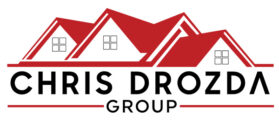
DIRECT: 613-223-6625 | OFFICE: 613-258-6299

5 Things You Need to Know About Buying Commercial property
5 Things You Need to Know About Buying Commercial property. The first thing you need to decide when first considering investing in commercial real estate will be the type of property that best suits your needs. Each has its pros and cons and will need different expertise. It’s important to note that residential mortgages are only available for residential properties like detached homes, townhouses, and condominiums. Commercial mortgages include retail buildings, offices, industrial buildings, multifamily units, and more. These different properties have features, risks, and investment strategies that necessitate a slightly different approach to financing.
1. The Different Types of Commercial Properties
When looking into buying commercial real estate, it is important to factor in the different types of commercial real estate available. There are many different building types, property, and land use types. Here are a few of the various commercial property options to consider:
Multifamily
Multifamily properties can be both residential and commercial class real estate investments. Financial Institutions consider buildings with 5 or fewer units as a residential class investment and those with 6 or more units as a commercial class investment.
Retail
There are various subtypes of retail space in regard to commercial properties. Depending on the type of business you are looking to fill the space with will determine which of the various retail properties meet your needs. A few types to consider: Retail property types are properties used to market and sell consumer goods and services. This category includes single-tenant retail buildings, small neighbourhood shopping centers, larger centers with grocery store anchor tenants, and “power centers” with large anchor stores.
Light/Heavy Industrial
Heavy industrial properties include a wide range of industrial uses which, by their nature, generate noise, fumes, odours or even would be appropriate for large manufacturing companies. The property would typically be purpose-built to accommodate specific machinery. These plants require substantial renovations to re-purpose the space for another user or tenant, which can be very expensive. Light industrial properties, however, are much simpler and can be more easily reconfigured for other users. Light industrial properties include low-impact industrial uses such as product assembly space, distribution centers, as well as office and office type uses.
Office Space
Offices are commercial properties primarily used to maintain professional or business offices. It is an encompassing term that may include single-tenant properties, small professional office buildings and downtown skyscrapers. Office space can be rented out to businesses at costs that coincide with square footage and location, making a great potential for return.
Hotels
Hotel space has great potential for income. Hotels provide accommodation, food, and other amenities such as swimming pools, gyms, and a liaison that can assist travelers and tourists during their stay. Depending on where your hotel or motel is located can make it a successful establishment. Hotels can be independent (boutique) or a part of a major hotel chain.
2. More Money Down
Commercial real estate often requires a more significant up-front investment than residential properties. The advantage of investing in commercial real estate is that there is long-term stability with tenants and the income generated. Commercial leases are for a longer term than a residential lease which means that you do not have a constant turnover of tenants. Most leases provide for the tenant being responsible for the payment of operating costs associated with the operation of the building. Commercial leases are not as highly regulated as residential leases and do not encumber the landlord as heavily.
3. Commercial Properties are Valued Differently
There are two approaches that can be used to evaluate a commercial real estate. One approach is an income approach. The other approach that REALTORS ® use is the cost approach The value of a commercial property will depend on its functionality and income. Cost to maintain the properties functionality, the current market value of the land, and the depreciation of the property will all come into play as well.
4. Longer Due Diligence Period
Doing your due diligence is a necessary step in buying real estate of any kind, however, when purchasing commercial real estate, the process can take much longer and of a greater cost than residential real estate. The process will include multiple inspections, building condition assessments, lender fees, environmental assessments, a title search, a survey, and a review of the owner’s major expenditures on the property such as utility bills, taxes, maintenance, and any structural repair fees.
5. Better monthly cash flow, less passive appreciation than residential
Before taking on a commercial mortgage, you should work with a commercial mortgage broker to help you understand your options and find the most competitive interest rates and terms for your next deal. You should also consider speaking with other professionals such as real estate lawyers and business planners to make sure you are approved quickly and your business or investment is successful. Ensure your entire team is commercial focused as it requires an entirely different set of skills. And of course, don’t forget your
While these are the top 5 Things You Need to Know About Buying Commercial property, your Commercial Realtor will be able to dive in deep to help you make the best decisions.
CONTACT US
Get In Touch
Chris Drozda
Broker
304 Colonnade Dr.
Kemptville, Ontario
Canada K0G 1J0
Office: 613-725-1171
Toll Free: 1-800-307-1545
The trade marks displayed on this site, including CREA®, MLS®, Multiple Listing Service®, and the associated logos and design marks are owned by the Canadian Real Estate Association. REALTOR® is a trade mark of REALTOR® Canada Inc., a corporation owned by Canadian Real Estate Association and the National Association of REALTORS®. Other trade marks may be owned by real estate boards and other third parties. Nothing contained on this site gives any user the right or license to use any trade mark displayed on this site without the express permission of the owner.
powered by WEBKITS
